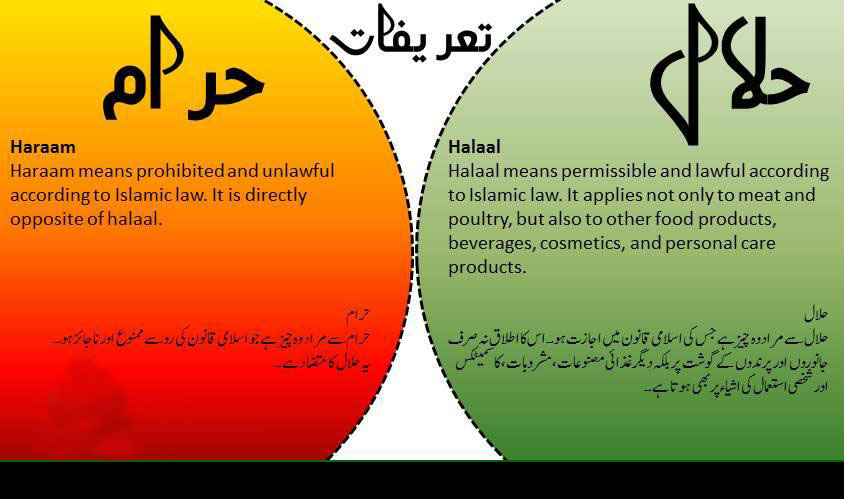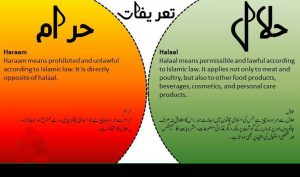Halal And Haram Definition
Halāl (Arabic: حلال ḥalāl, “permissible”), also spelled hallal or halaal, refers to what is permissible or lawful in traditional Islamic law. It is frequently applied to permissible food and drinks.
In the Quran, the word halal is contrasted with haram (forbidden).[1] In Islamic jurisprudence this binary opposition was elaborated into a more complex classification known as “the five decisions“: mandatory, recommended, neutral, reprehensible, and forbidden.[2] Islamic jurists disagree on whether the term halal covers the first three or the first four of these categories.[2] In recent times, Islamic movements seeking to mobilize the masses and authors writing for a popular audience have emphasized the simpler distinction of halaland haram.
Haram (/ˈhɛərəm, ˈhær-/; Arabic: حَرَام ḥarām [ħaˈraːm]) is an Arabic term meaning “forbidden”. Thus it may refer to: either something sacred to which access is forbidden to the people who are not in a state of purity or who are not initiated into the sacred knowledge; or to an evil thus “sinful action that is forbidden to be done”. The term also denotes something “set aside”, thus being the Arabic equivalent of the Hebrew concept קָדוֹש qadoš, and the concept of sacer (cf. sacred) in Roman law and religion. In Islamic jurisprudence, haram is used to refer to any act that is forbidden by Allah, and is one of five Islamic commandments (الأحكام الخمسة (al-ahkam al-khamsah)) that define the morality of human action.



